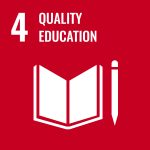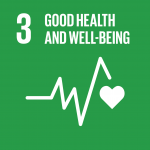 Yogyakarta, June 28, 2025 — Entering the fifth day of Track Inference in the MIDSEA Summer School, participants were treated to in-depth material on model selection presented by Dr. Akira Endo, Assistant Professor from the Saw Swee Hock School of Public Health. This session was one of the highlights of the day, as it directly discussed the foundations of statistical and epidemiological modeling.
Yogyakarta, June 28, 2025 — Entering the fifth day of Track Inference in the MIDSEA Summer School, participants were treated to in-depth material on model selection presented by Dr. Akira Endo, Assistant Professor from the Saw Swee Hock School of Public Health. This session was one of the highlights of the day, as it directly discussed the foundations of statistical and epidemiological modeling.
Dr. Endo opened the session by reflecting that while all models are hypothetical and never truly represent reality, they can still be evaluated based on their ability to approximate observed data or the actual mechanisms that generate the data. In other words, model selection can focus on two goals: predictability or model support.
Participants were introduced to various metrics for evaluating models: AIC (Akaike Information Criterion) and WAIC for assessing predictability, and BIC (Bayesian Information Criterion) for measuring how well a model describes real mechanisms. This philosophical difference raised a fundamental question: are researchers more interested in the results from a “black box,” or in its internal mechanisms?
The discussion then evolved to practical challenges in using AIC and BIC, especially in the context of infectious disease modeling. Dr. Endo explained that important assumptions such as the normality of the likelihood surface and sample independence are often not met. This can lead to certain models becoming singular and making maximum likelihood estimation (MLE) unstable. This is where alternative criteria like WAIC, WBIC, sBIC, and even the Laplace Approximation (LAME) approach become relevant.
Additionally, the closing session of the day featured Dr. Swapnil Mishra, who provided an engaging introduction to Approximate Bayesian Computation (ABC). This material opened new insights into Bayesian inference approaches when the likelihood is difficult to compute explicitly, complementing previously discussed concepts. Dr. Mishra also shared online resources and practical exercises through interactive links, enriching the participants’ learning experience.
With a combination of two expert speakers, the fifth day of MIDSEA Summer School was one of the most intensive and meaningful days in strengthening the inferential competencies of the participants.
Keywords: MIDSEA, Modelling, Infectious Diseases Modelling
Author: Najida Humaira
Photos: Lucetta Amarakamini


